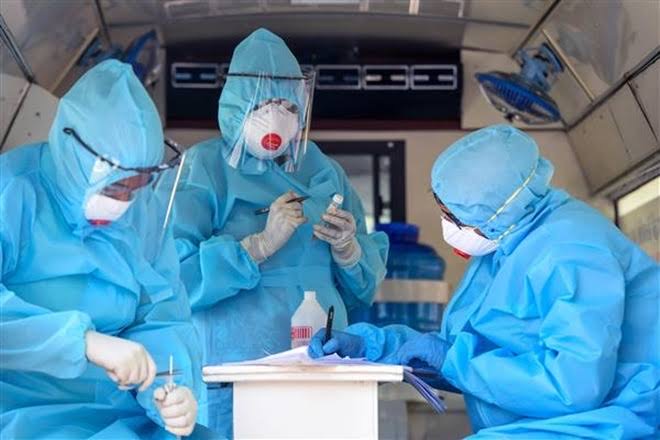The emergence of the antigen testing technique is seen as a significant contributor to the improvement of testing rate in the Philippines. But is it enough to confirm your COVID-19 results?
Companies and the rest of the private sector are urged to do a better screening of their employees. The antigen testing technique offers faster and more accurate results than the rapid test kits.
“Accurate and timely diagnosis of infected COVID-19 patients is crucial as the disease is easily transmitted during active infection. We are after solutions that help us intervene in a timely manner in order to systematically contain the virus,” says AFP Infectious Diseases Specialist Dr. Ma. Melissa Monica L. Turao-Agoncillo. With the broader vision of democratizing disease management mechanisms locally, Firstline Solutions is among the pioneer distributors of the new FDA-approved antigen testing kits.

While the now contested rapid antibody tests detect antibodies present during the recovery phase when many opportunities for clinical intervention have already passed, the antigen rapid test detection not only allows healthcare workers to treat patients properly but also helps prevent further spread of the virus.
Like PCR tests, Antigen testing uses swab samples collected from the nasal cavity or throat.
As the whole country is poised to anticipate the eventual return to business as usual, the logistics of testing for the novel coronavirus remains an issue nationwide. While the PCR (swab) tests yield the most accurate results, the “gold standard” of testing comes at a high cost. People want fast, accurate, and cheap testing solutions, but it seems we can only have two of these qualities at a time. While the rapid antibody testing offers a more affordable and accessible alternative, problems with accuracy often render rapid antibody test results almost invalid.
However, a third testing option is viewed as a possible solution that bridges this gap. Antigen testing is a new type of diagnostic test specifically designed for rapid detection of the virus that causes Covid-19. Significantly more accessible than a swab test and more accurate than the rapid antibody test, antigen testing detects fragments of proteins found on or within the virus by using swab samples collected from the nasal cavity.
Although PCR tests have a higher sensitivity compared to the new antigen testing, this new diagnostic test can be more easily used as point-of-care tests in urgent care centers such as hospitals and even workplaces. Antigen testing doesn’t require expensive equipment and trained specialists, making these tests much easier and cheaper to administer.
Antigen tests can yield results within 15-30 minutes, making it more suitable for testing in the communities as well as remote regions. It is also the new preferred screening tool in both hospitals and workplaces. Some experts argue that fast-moving antigen tests could help ease testing bottlenecks enough to compensate for their reduced accuracy.
However, unlike PCR tests that look for genetic material from the SARS-CoV-2 virus, antigen tests look for proteins that live on the virus’s surface. This process is a little less labor-intensive than PCR testing since there isn’t much chemistry involved. But it’s also less sensitive.
That opens the door for possible false positives (if the test picks up on proteins that look similar to those from SARS-CoV-2) or negatives (if it misses proteins entirely). False positives are rare with antigen tests, but as many as half of negative results are reportedly inaccurate. If you test negative but are showing symptoms or have had a risky exposure, your doctor may order a PCR test to confirm the result.
To know more about the new diagnostic antigen testing, email [email protected] for further information.







